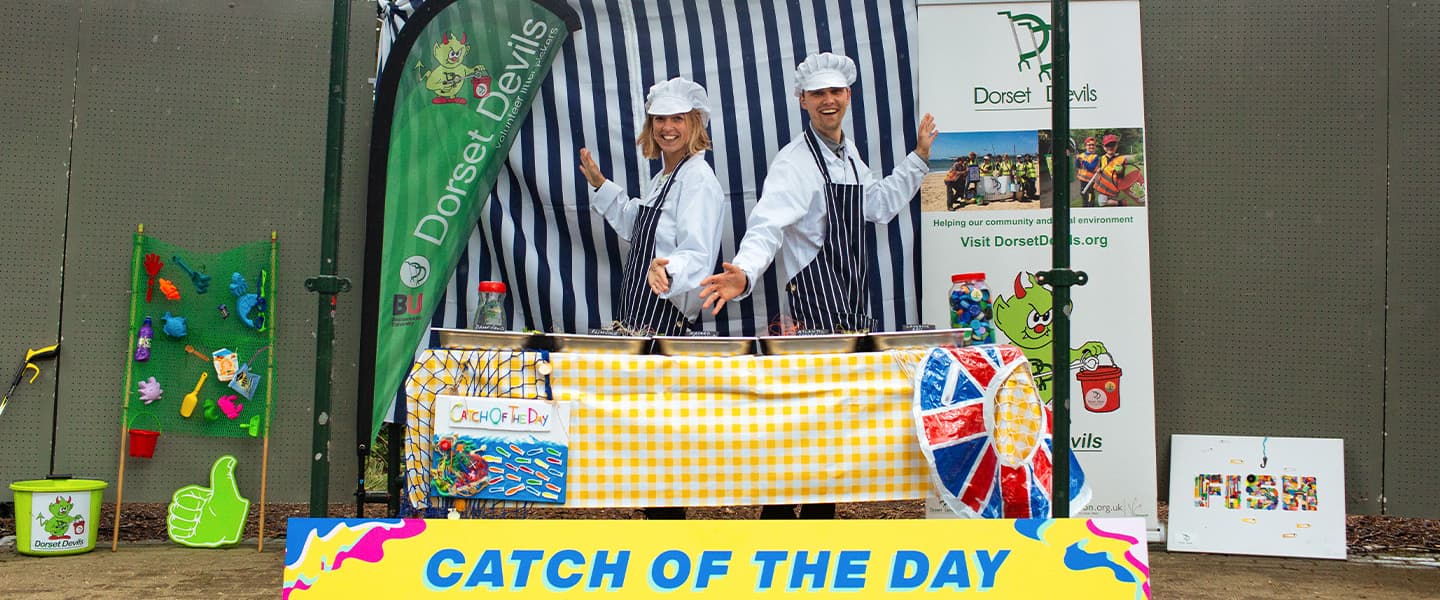How scientific data helped reveal new approaches needed to cut plastic pollution and littering
By Trewin Restorick 29th September, 2021
The most robust survey of littering ever undertaken in the UK
Littering is a stubborn ongoing irritant for many people. There are many theories on what items are most littered, who is to blame and how it should be stopped. Views are often communicated passionately but rarely based on hard data. To create a more informed discussion, Hubbub commissioned scientists at Ellipsis Earth to undertake the most robust survey of littering ever done in the UK.
Three sets of surveys using drone flights and street photos took place over Bournemouth, Christchurch and Poole, to create a detailed map of every bit of litter dropped in the surveyed areas including beaches, town centres and green spaces. Surveys took place during the March lockdown, over May half-term and Bank Holiday weekends and during the August summer holidays.
Hubbub used the data collected in May to implement a range of anti-littering interventions built around positive, playful and proven behaviour change techniques. In parallel, a more traditional communication campaign was run using provocative and challenging messaging. Results were measured by the August survey and revealed that a fundamental change in traditional approaches is required to stop littering and cut plastic pollution.
Prevention should be priority
Endlessly picking up litter is time-consuming, expensive and a waste of limited resources. Strategies should focus on stopping it being created in the first instance. In Bournemouth, the data revealed a range of steps that could be taken if government, councils and companies followed a more enlightened strategy.
- The polystyrene pest
Food outlets along the Bournemouth beachfront sell takeaway food in disposable polystyrene containers. Many are left on the beach to be pounced upon by seagulls searching for food scraps. The containers break into tiny plastic fragments which are blown or washed into the sea.
A prevention-based policy would insist that outlets work together to provide a reusable container with a deposit repayable when returned, significantly cutting this form of plastic pollution. The solution is viable but requires a more interventionist approach. - Abandoned beach toys
The data illustrated that a surprising number of beach toys such as buckets, spades and inflatables are left littered on the beach. These are relatively cheap so either break easily or can be cumbersome to carry, so clearly some people think they are not worth the effort of removing.
A solution might be to create a rental service for quality toys on the beach front. Not only could this cut littering it would also reduce the hassle of buying and lugging awkward items around which are only used infrequently. - Napkin overload
The surveying was funded by McDonald’s and the data revealed a significant number of napkins littered around their restaurants. The evidence was used to change how napkins are handed out to customers which had an instant impact on litter. McDonald’s also used the data to change the areas covered by their daily litter-picking teams, resulting in more litter being collected in the same amount of time. Other outlets could adopt similar policies which would cut opportunities for littering. - Timing is key: out of sight but not out of the sea
Bournemouth rightly prides itself on world class beaches. The pristine sand is cleaned early every morning before visitors arrive. However, significant levels of litter are dropped in the late evening by people on the beach. This litter is inevitably washed out to sea before the early morning clean. Shifting cleaning routines to just before High Tide would help prevent plastics reaching the sea. This is harder for the council to organise and potentially more expensive but would prevent much litter from simply washing away. - The power of messaging: playfulness vs blaming
Councils are exasperated by the amount of litter dropped, often pointing out the availability of bins and the amount spent on clean-ups. This exasperation is sometimes reflected in their communications which focus on blame and accusations.
The detailed data, collected through the surveys, was able to gauge the localised impact of this negative messaging against more playful interventions including voting bins and even a disco bin playing music targeted at late-night party goers.
The results were surprisingly clear. Well-placed bins with Hubbub’s playful, engaging and positive designed messaging reduced littering by around 75%. Areas where no interventions were placed saw no change in litter, but areas in the close vicinity of aggressive messaging saw an average 10% increase. These results strongly suggest a shift in messaging could make a significant difference.
The importance of data
Above everything, the campaign illustrated the significant value of high-quality data to inform decision-making. Based on the information provided, councils could create more focussed litter prevention strategies, place bins where they are most needed, refine messaging in hot-spot areas, target resources more efficiently and work more closely to reduce littering.
The experiment in Bournemouth illustrates that a more sophisticated strategy implemented across the area could radically reduce littering. Hubbub’s intention is to further develop the approach and to work with councils who have the appetite and commitment to try new things. Get in touch at hello@hubbub.org.uk if you’d like to find out more.
Are you a business that wants to collaborate?
If you have a challenge to share, or want to get involved with our work, we'd love to hear from you.
Want to stay in the loop?
Sign up to our newsletters to be the first to know about new campaigns, launches, tips, research and environmental news. You’re in for a treat.
